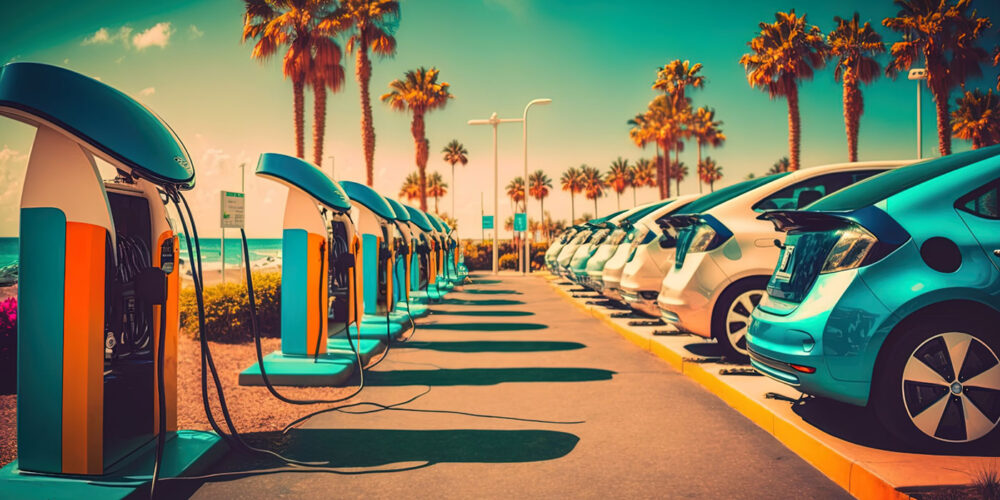
Despite a federal initiative to have electric vehicles (EVs) account for at least 50% of new car sales by 2030, and a 65% jump in EV sales in 2022, 79% of Americans are still driving gas cars in 2023 and they aren’t ready to make the switch. This is according to a new round of survey data provided by insurance company ValuePenguin, by LendingTree.
Here’s what is holding Americans back from widespread EV adoption, according to the data:
- Cost is the biggest barrier to EV ownership: Although tax breaks could help with the overall cost, 36% of Americans surveyed say their major concern is price. With the average price of an EV at $58,725 in 2023, income level is a major barrier. Americans making less than $35,000 are 43% more likely to cite price as a deterrent than those in households making at least $100,000.
- Americans don’t know enough about EVs: 70% of Americans surveyed admit they know very little about EVs, and this may be why they’re citing factors like a lack of charging stations (24%) and insufficient driving range (12%) as barriers to EV ownership. There are 47,200 publicly accessible EV charging stations in the U.S., according to an IEA analysis, and President Joe Biden said during his 2023 State of the Union address that the country would build 500,000 EV charging stations in the near future. EVs have also shifted from first-generation models that barely ran for 100 miles on a charge to updated offerings that are now approaching 500 miles per charge.
- Worry about self-driving tech in EVs: As more EV manufacturers offer more fully self-driving features in their vehicles, 40% of Americans surveyed say a driverless automobile would make them feel much less safe on the road and 45% say these vehicles pose a tremendous risk to pedestrians. Fifty-three percent also say the driver should be at fault if they get in an accident, even if the car is being controlled by self-driving tech.
- What are Americans driving in 2023?: You’ll find more baby boomers at the pump than any other generation — 87% surveyed are driving gas-powered vehicles, followed by 84% of Gen Xers. Gen Zers are the most likely generation to drive an electric vehicle (whether purely electric, hybrid or plug-in hybrid), but they’re also the most likely to report they don’t drive or don’t primarily use the same vehicle.
- The math behind EV ownership in 2023: While EVs are seen to offer long-term savings, the savings are not the same for everyone. For starters, charging your car at home will cause your electricity bill to rise, and electricity costs, like gas prices, vary significantly by region. Americans surveyed who need to rely on public charging stations – which are more expensive than charging at home – will also see their fueling costs increase significantly. EVs are also, on average, 28% more expensive to insure and damages are 27% more expensive to repair compared to a gas car.
LendingTree says it commissioned Qualtrics to conduct an online survey of 2,041 U.S. consumers ages 18 to 77 from Feb. 7-10, 2023. The survey was administered using a nonprobability-based sample, and quotas were used to ensure the sample base represented the overall population. All responses were reviewed by researchers for quality control.
Read the full article here



